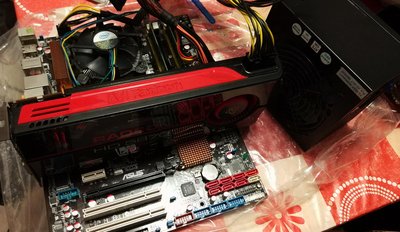According to my device manager for my 6GB 980ti in Windows 10 64-bit, the memory mapper only shows address ranges that total up to ~40 MB. The reason I call foul is because there's NO WAY the CPU can dump enough game data to fully load the card during gaming or rendering with only 40MB of addressable memory space, and that INCLUDES the I/O mapped portion that's only 16 bytes large.
Granted, the GPU itself tends to manage the graphics card's data as it probably has to store a lot of calculation results. But 40MB? Come on.
And don't even bring up PAE. That's on used by Server OS, not regular Windows. They flirted with it a bit during the XP days, but it was buggy and caused crashes.
So for now, let's just say: we're not 100% sure.
The last 32-bit OS I used was Windows XP and I never tried to run it on any system with more than 2GB of RAM, plus my graphics cards have all been below the 512MB line, so address space was never an issue for me. XP runs BEAUTIFULLY with 2GB of memory.
Just like Windows Vista runs BEAUTIFULLY with 4GB of RAM and at minimum a dual-core processor. I recommend a quad-core minimum for Windows 8/8.1/10 and beyond. Also, 8GB of RAM for Windows 10 - it seems to make it run more smoothly than just 4GB does.





